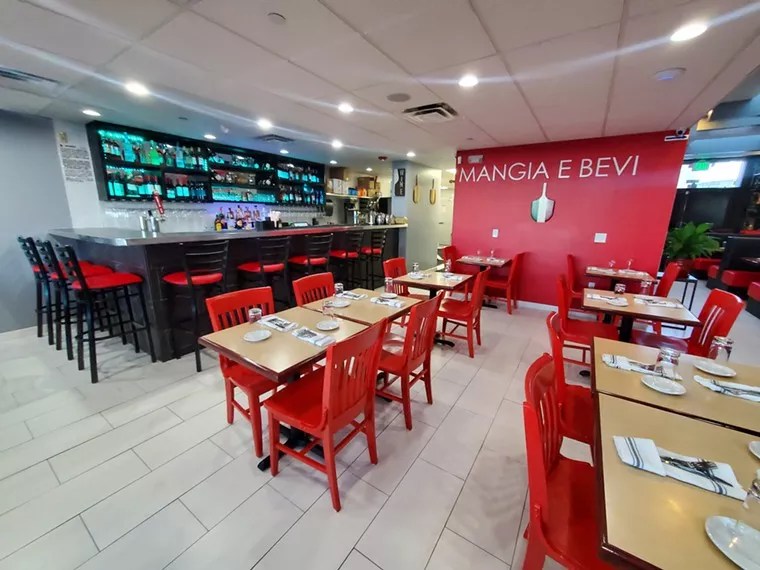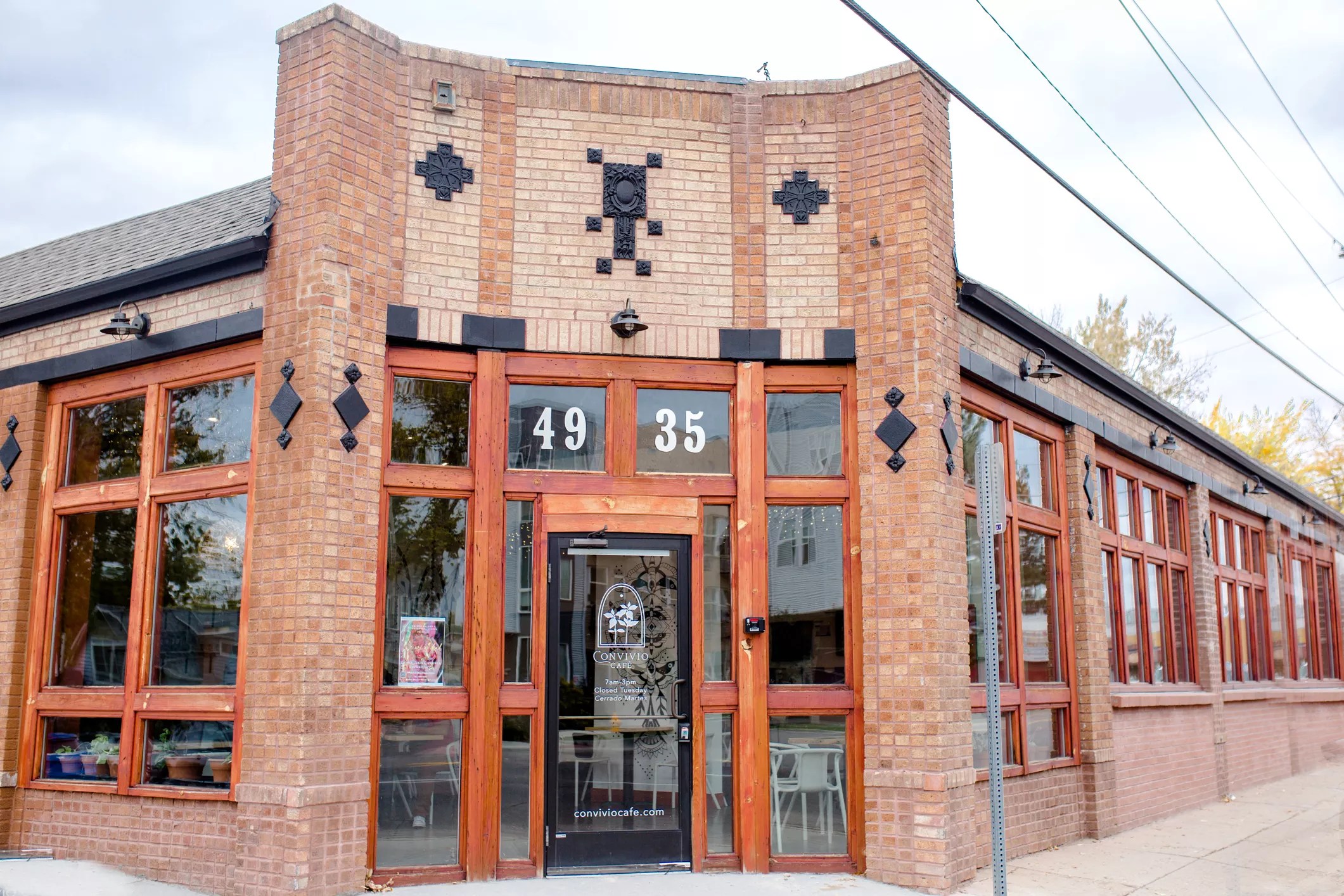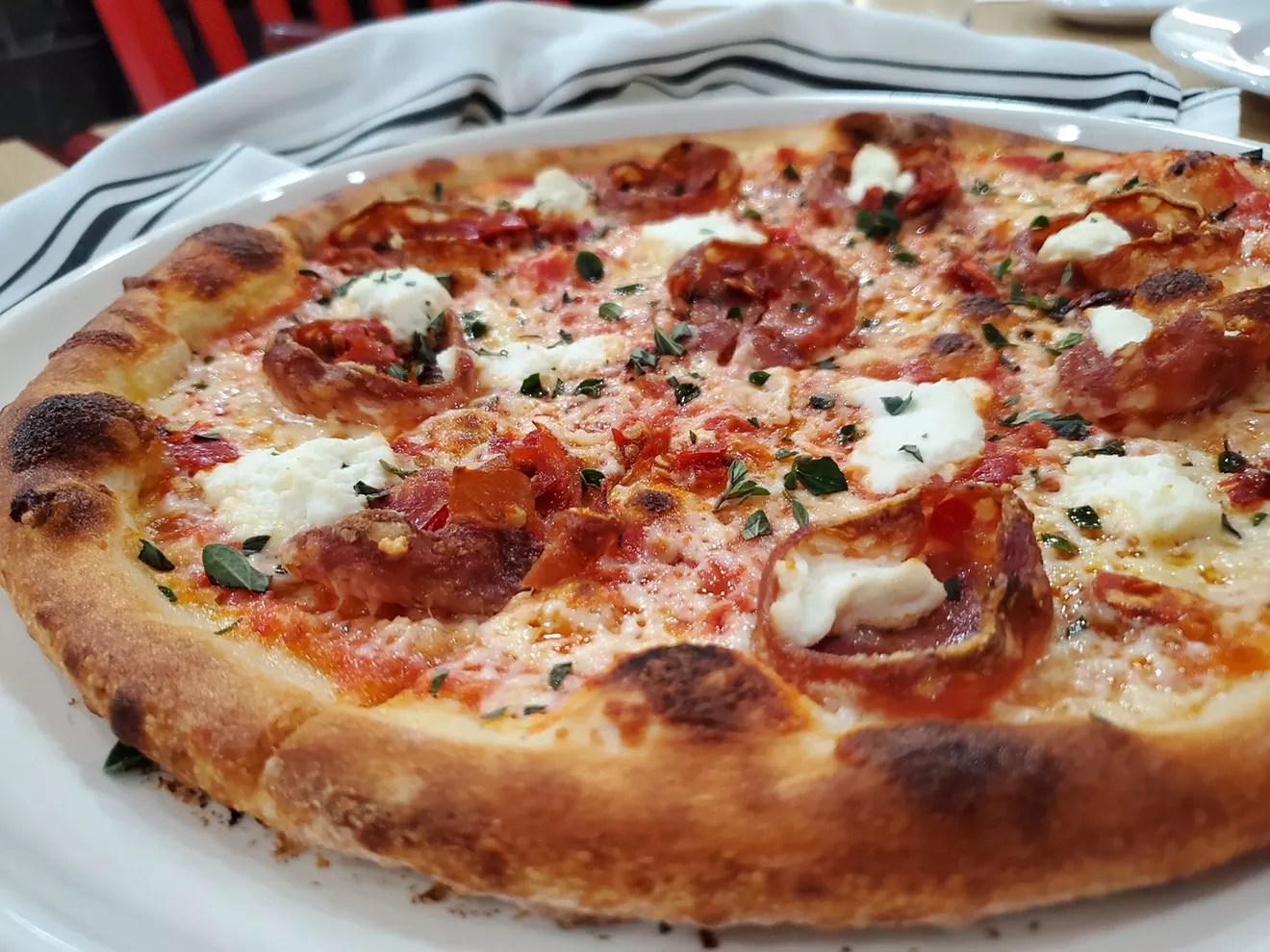
Unsplash: Scott Graham

Audio By Carbonatix
“It is frankly impossible for a middle-class person to start a business with these kinds of delays and these kinds of demands,” says Kristin Lacy, co-owner of Convivio Cafe, which opened its doors at 4935 West 38th Avenue last November after enduring a long process of getting permits, inspections and business licenses from the City of Denver.
Convivio isn’t the only business to experience delays in the permitting process. We spoke with eight restaurant owners about the topic, and all of them recounted the byzantine, bureaucratic quagmire in which they found themselves. Many asked that they not be named for fear of retaliation from the city, as they are either in the process of getting an occupancy permit or are still under a temporary occupancy permit.
“Black hole,” “hurry up and wait,” “absolutely no common sense,” “completely unreasonable” and “hostile to businesses” are phrases that came up again and again as the owners described a process that borders on Kafkaesque, leaving them feeling powerless at the hands of uncompassionate bureaucrats.
The process begins after a restaurateur signs a lease; a possession of property certificate is needed to start the permit application, and the clock starts ticking for rent payments in the meantime.
Luis Gutierrez, owner of Cucina Bella, which also opened in November, has worked in restaurants since getting a job as a dishwasher at seventeen. When he decided to open his own eatery, friends in the industry prepared him for a long lead time; he planned for the process to take four months since the build was relatively straightforward. The space at 9660 East Alameda Avenue, formerly a Donut House location, was already outfitted with a full working kitchen; the only work to do included upgraded drains and the addition of a bar and some new appliances. “The architect and engineer had everything prepared so that we could submit everything in February as soon as I signed the lease,” Gutierrez explains. “Then we didn’t hear anything for three months afterward. And you can’t start construction without the approval, so we just sat and waited.”

Opening Cucina Bella took Luis Gutierrez much longer than anticipated.
Molly Martin
After additional back-and-forth, Cucina Bella was finally granted its building permit and was able to start construction. However, the process was slowed because of the constant inspections required by the city. “We started digging to put in more drains, but before you put in cement, you have to have an inspection. Once we built the bar, before you tile, you need an inspection of just the frame,” Gutierrez notes.
Each business is unique, but by default, a retail food establishment will need approvals and inspections from five departments: Fire, Health, Zoning, Excise & Licenses and Community Planning & Development, which itself involves multiple disciplines including HVAC, plumbing, electrical and mechanical. In many cases, the Department of Transportation & Infrastructure will also get involved for wastewater and right-of-way. During the permitting process, a restaurateur is often communicating with eight or more individuals, each with their own set of expectations and timelines.
Business owners recount instances where the HVAC department asked for a change that conflicted with the electrical department’s requirements. Or situations where a department holds up an application because it needs to confirm something with another department, but instead of going directly to that department, communicates with the business owner.
“You submit your plans to an online system, but you can’t talk to anyone directly,” Lacy says. “There’s only one login to the system, which our architect has, so we’d rely on our architect to check once a week and update us.”
Each clarification or additional ask by any department counts as a “re-submit” in the system, bumping the application to the back of the line. Lacy and Convivio co-owner Vivi Lemus expected their coffee bar would cost $50,000 and take six months to build; in the end, the costs topped $250,000 and the process took over a year.

Convivio’s grand opening was November 1.
Brooke Leigh Photography
Eric Escudero, spokesperson for the Department of Excise & Licenses, notes that everyone going through the permitting and licensing process has the option to email at licenses@denvergov.org, call 311 for help or even file a complaint. He highlights work the department has done to decrease approvals to 4.5 days (for all businesses) and increase first-call resolutions to 50 percent.
In acknowledgement of the multi-step, multi-agency process, he says that the department has hired a “business license navigator” whose job is to specifically walk business owners through the process. “We have one cannabis license navigator and one business license navigator. And she is extremely busy,” Escudero admits.
But Excise & Licenses is just one of multiple departments with which restaurateurs must coordinate, and there is no single point of contact available to answer general, overarching questions about the process.
“We’re just one of multiple checkboxes in the process,” says JD Chism of the Denver Fire Department, who emphasizes that the fire department is an advocate for businesses and tries to work with owners on minor code violations by issuing temporary variances. Business owners are still required to address the issue before receiving a permanent occupancy license, however.
The Excise & Licenses, Fire and Development departments all emphasized Denver’s massive growth and their attempts to keep up. Escudero notes that 2022 brought the highest volume of business license transactions in the history of Denver. The Department of Community Planning & Development openly acknowledges its staffing shortage and publishes its current plan review times, which as of January 7 was 5.14 weeks for the initial review of intermediate commercial projects.
Some business owners don’t consider that an acceptable excuse for the lack of communication among departments and their unreasonable demands. “We built this coffee bar to put our espresso machine on, and the wastewater people rejected our permit because they said we needed an 800-gallon grease trap, which would have been $250,000 to rip up the foundation of the building to install,” Lacy recalls. “It took three to four weeks to track down that person and get them on the phone. When we did, they said ‘Oh, I didn’t realize you didn’t cook meat. I didn’t realize it was a coffee bar.'” Convivio Cafe was ultimately able to get a variance and did not have to install the grease trap.

Dragonfly Noodle experienced delays getting its liquor license.
Molly Martin
One restaurateur was shocked when he was told to raise the arch above a parking lot entrance by five inches because it didn’t meet code. The arch had been there for decades, and his restaurant shares the parking lot with three other businesses who have been operating for multiple years. “Sometimes their rules seem arbitrary, if not just completely unreasonable,” the owner says. “But it’s on us to have to fight and plead and beg for common sense.”
Another business owner remembers the final inspector refusing to grant an occupancy permit because of tables, chairs, equipment and inventory in the space. To placate the inspector, the owner rented a U-Haul for one day and had friends and family help move everything out so the inspector would sign off on the now-empty building.
Edwin Zoe, who opened the second location of Dragonfly Noodle on the 16th Street Mall last year, recounts a bizarre incident that held up that restaurant’s liquor license. “There is a legal description of our address which is different from our postal address,” Zoe explains. Because of that discrepancy, the city refused to grant a liquor license, telling Zoe he had to convince the post office to officially change his address to match the legal description. Additionally, getting the liquor license required the same inspectors who had done the construction inspections to come back and redo the exact same process. “These guys would come in and be like, ‘Yeah, I’ve already seen this,'” Zoe recalls. These combined headaches meant that Dragonfly Noodle opened last July but was not able to serve alcohol until three months later.
Zoe’s advice to aspiring restaurateurs: “Give it a really long time. It took us almost a full year, and we were doing a second-generation restaurant remodel.”
However, more time means more money, in the form of rent, utilities and lost revenue. “I was not happy at all. Finally, after working more than twenty years in the kitchen, I was following my dream; I’m doing this for my family,” Gutierrez says. “I can’t afford to sit around for months waiting. It should be easier. I don’t know why it took so long.”
Another restaurateur adds, “It’s frustrating to be told ‘It’ll be a few more weeks, few more weeks,’ when every day you’re losing money and not making money.”

Now that Cucina Bella is open, Gutierrez can focus on serving pizza, pasta and more.
Molly Martin
Some owners become desperate enough to bend and break the rules. Multiple restaurateurs admitted that the common practice in the industry is to submit a simple, pared-down menu to stay under the Health Department’s radar. Once the permitting and licensing process is well in their rearview mirror, they eventually build up to a full menu. Others go rogue and bring in hot plates and portable fryers without disclosing that in the review process. Otherwise, “it’ll cost you $100,000 to sauté onions, because they’ll want a full stove range and hood,” says one frustrated owner.
It can also be worth paying extra for someone else to take care of the permitting process. Billie Hawkins and his husband are co-owners of Bad Habits, a neighborhood bar planning to open in February in Congress Park. They decided to pony up $8,400 to the law firm Runco & Proffitt to handle all of the licensing requirements. The two initially thought they would handle it themselves, and even watched all the available tutorial videos. “[The city] does walk you through, but they mention terms and acronyms that you need to figure out. And they’ll list document numbers, but you need to find and download them, and sometimes they’re not even applicable,” Hawkins recounts. “And if you lie, if you don’t know the answer -you get fined. If you fill it out wrong, you’ll get fined. If you don’t submit, you’ll get fined.”
Hawkins decided it was best to leave it to the professionals, especially since Bad Habits is applying for both a liquor and a cabaret license, which requires going the extra mile. For the cabaret license, it was required to post a notice on the front door and give neighbors thirty days to react. Then it had to hire a company for an additional $1,500 to go knocking door-to-door in the neighborhood to get 100 signatures for its petition. “Because we went through an attorney, a lot of it was done for us. That’s the exception, not the rule. A lot of people think they can do it themselves,” Hawkins says. “My husband has two business degrees, and he was confused.”
Many of the first-time restaurant owners joked about the PTSD they still experience even speaking about the process. However, Lacy concluded on a more serious note: “If we want family-owned and unique businesses, businesses that feature local food and local artists and promote community involvement, the people that start those businesses are not millionaires. They don’t have the time and money to wait one and a half years for the city to tell them to pay $250,000 for a coffee shop. When I hear politicians say ‘I support small business,’ I think, what does that actually mean? Because for me, this is what it means.”